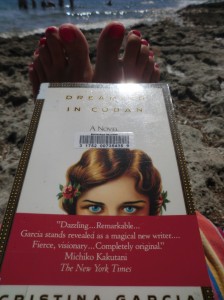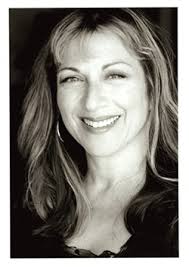 Set against the background of the Cuban Revolution, Cristina García’s Dreaming in Cuban is a story that spans three generations of women in the del Pino/Almeida family, highlighting the things that tie them together and those which push them apart.
Set against the background of the Cuban Revolution, Cristina García’s Dreaming in Cuban is a story that spans three generations of women in the del Pino/Almeida family, highlighting the things that tie them together and those which push them apart.
The book opens with a vision of a man walking across water, a vision seen through a pair of binoculars, by Celia, the matriarchal grandmother. The man she sees is her ailing husband, Jorge del Pino who left for the United States four years earlier to seek medical attention. Observing the apparition, she understands that he has passed on.
Her daughter Lourdes from whom she is estranged and her granddaughter Pilar, with whom she communicates through a kind of telepathic relationship, live in America. Celia is pro the Castro regime while Lourdes abhors it. On opposite sides of the revolutionary fence, neither will budge in their views or actions, despite the consequent rupture in their relationship and the knock on effect it has for others in the family, forced to take sides.
Pilar understands her grandmother and hates that the mother and daughter’s political beliefs prevent her from being closer to either of them. She rebels herself without knowing against what exactly, manifesting her discomfort with the world through impassioned artworks that initially disturb her mother and inspire harsh criticism, but which will eventually bring them closer together.
The past is also invoked through a series of letters written by Celia to Gustavo, the man she first loved, who it is revealed is the not the man she married. Though none of these letters were ever sent, they continue to be written over the years, a place where Celia shares her innermost thoughts, desires and regrets.
Her second daughter Felicia never leaves Cuba, marries, has children and at a certain point becomes somewhat deranged, remarrying twice in quick succession, attracting tragedy from the moment of her second marriage. She becomes deluded, seeks refuge in music and the Afro-Cuban cult of Santeria, becomes a priestess and loses herself completely.
Similarly to Edwidge Danticat’s Breath, Eyes, Memory, Cristina García explores themes of separation and identity, exile, the survival strategies of women and mother’s and the long threads of cultural connection that continue to exist despite the miles that come to separate those who embrace them.
In literature, it tends to be referred to as magical realism, that occasional departure from the firm reality we are sure of, however it seems almost too easy to dismiss it as a literary device and ignore the connections between and within certain cultural traditions, where this ethereal communication between the living and the dead, those present and those who are not, exists alongside the more mundane communication we all indulge in.
I have noticed this tendency occurring in my recent reading of Jamaica Kincaid’s The Autobiography of My Mother, Maryse Condé’s Victoire Edwidge Danticat’s Breath, Eyes, Memory and Cristina García’s work, writers from Antigua, Guadeloupe, Haiti and Cuba respectively and find it adds something essential and attractive to the narrative.
A brilliant addition to a growing collection of literature from this region, in a style I adore. A 5 star read for me. Highly recommended.



 where he learns the words
where he learns the words



 Fefa opens the book hesitantly, finds the pages blank within but wide open to her imagination, a place where she can write unobserved, in any way she wishes.
Fefa opens the book hesitantly, finds the pages blank within but wide open to her imagination, a place where she can write unobserved, in any way she wishes. “After my mother
“After my mother